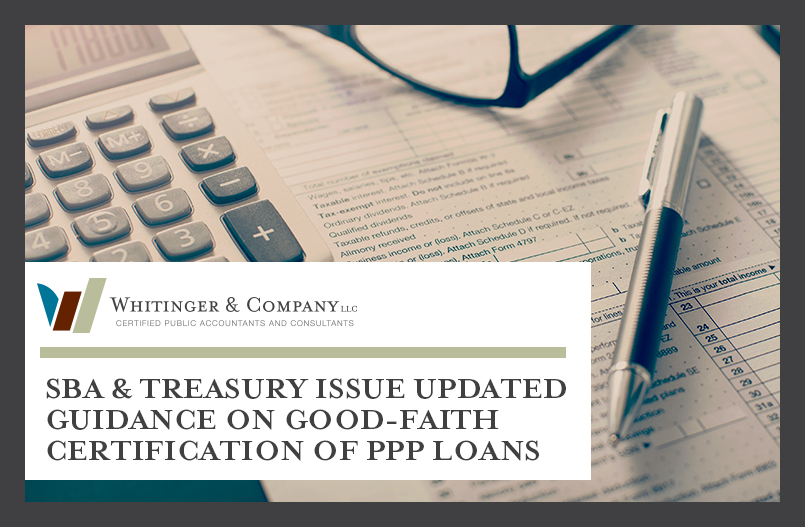Earlier today, the SBA and Treasury updated the PPP FAQ to address how they will review the good-faith certification concerning the necessity of the borrower’s PPP loan request. We expect an interim final rule formalizing this guidance to be issued in the coming days. A full copy of the updated FAQ is attached here. The complete Q&A regarding the good-faith certification is below.
Highlights:
- Any borrower that, together with its affiliates, received PPP loans with an original principal amount of less than $2 million will be deemed to have made the required certification in good faith.
- Borrowers with loans greater than $2 million will be subject to review by the SBA. If the SBA determines the borrower lacked an adequate basis for the required certification concerning the necessity of the loan request, the SBA will seek repayment of the outstanding PPP loan and will inform the lender that the loan does not qualify for forgiveness. If the borrower repays the loan after receiving notification from the SBA, the SBA will not pursue administrative enforcement or referrals to other agencies.
Question #46: How will the SBA review borrowers’ required good-faith certification concerning the necessity of their loan request?
Answer: When submitting a PPP application, all borrowers must certify in good faith that “Current economic uncertainty makes this loan request necessary to support the ongoing operations of the Applicant.” SBA, in consultation with the Department of the Treasury, has determined that the following safe harbor will apply to SBA’s review of PPP loans with respect to this issue: Any borrower that, together with its affiliates, received PPP loans with an original principal amount of less than $2 million will be deemed to have made the required certification concerning the necessity of the loan request in good faith.
SBA has determined that this safe harbor is appropriate because borrowers with loans below this threshold are generally less likely to have had access to adequate sources of liquidity in the current economic environment than borrowers that obtained larger loans. This safe harbor will also promote economic certainty as PPP borrowers with more limited resources endeavor to retain and rehire employees. In addition, given the large volume of PPP loans, this approach will enable SBA to conserve its finite audit resources and focus its reviews on larger loans, where the compliance effort may yield higher returns.
Importantly, borrowers with loans greater than $2 million that do not satisfy this safe harbor may still have an adequate basis for making the required good-faith certification, based on their individual circumstances in light of the language of the certification and SBA guidance. SBA has previously stated that all PPP loans in excess of $2 million, and other PPP loans as appropriate, will be subject to review by SBA for compliance with program requirements set forth in the PPP Interim Final Rules and the Borrower Application Form. If SBA determines in the course of its review that a borrower lacked an adequate basis for the required certification concerning the necessity of the loan request, SBA will seek repayment of the outstanding PPP loan balance and will inform the lender that the borrower is not eligible for loan forgiveness.
If the borrower repays the loan after receiving notification from SBA, SBA will not pursue administrative enforcement or referrals to other agencies based on its determination with respect to the certification concerning the necessity of the loan request. SBA’s determination concerning the certification regarding the necessity of the loan request will not affect SBA’s loan guarantee.
The Whitinger team remains available to advise you throughout this situation. Please do not hesitate to reach out if you have questions or would like to discuss this new guidance.
We are here and ready to help.



